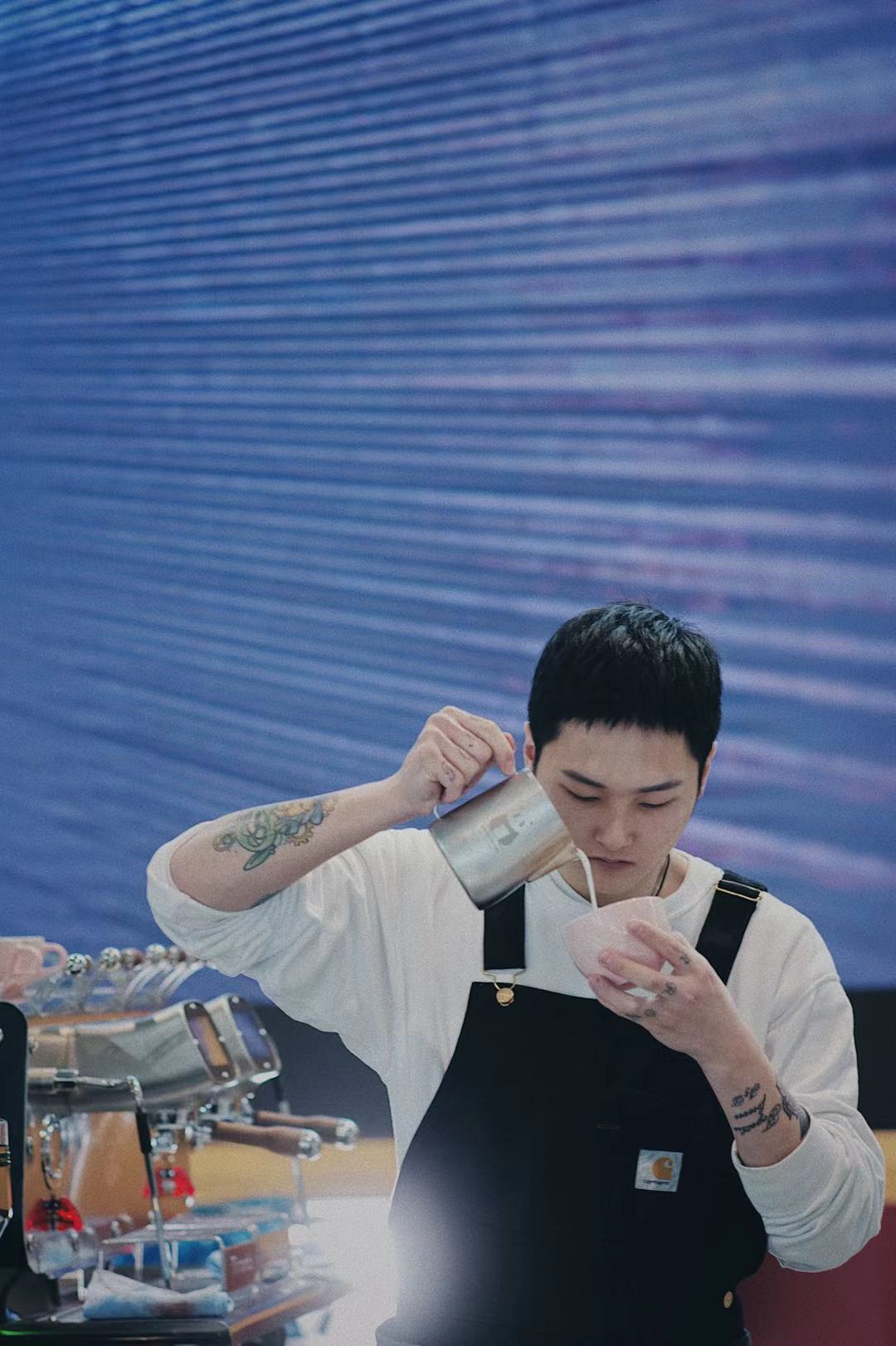Talented baristas showcase their competitive skills
By XING YI in Shanghai | CHINA DAILY | Updated: 2021-04-19 08:17

Pan Enqi became a little nervous after accidentally spilling a cup of food dye just before the start of his performance in the China final of the World Latte Art Championship, which involved making four cups of caffe latte.
But the 26-year-old quickly calmed himself and rushed back to get a new cup, before returning to the stage.
Throwing candies featuring a rooster design to the audience, he said, "Today, I want to share with you the inspiration for my creation.
"The rooster candy is my fond childhood memory, and I will present the design on my latte art."
As he spoke, Pan made two cups of espresso, drawing a rooster design with steamed milk. He used the dye to color the crest in just four minutes.
In the next four minutes, he made another two cups of latte with a cartoon bear design, presenting his work to the judges.
Pan was one of 180 contestants from across the country appearing at the China final, held in Shanghai from March 29 to April 1.
Amid expansion by large coffee chains such as Starbucks in the past two decades, artisan coffee, or craft coffee, which focuses on the finer details of coffee-making, is on the rise in Shanghai, calling for skillful baristas such as Pan.
According to a report on coffee consumption in Shanghai published by business media group Yicai, more than half the coffee shops in the city are considered boutique cafes, including independent cafes, small chain brands and artisan coffee retailers such as Peet's Coffee and Arabica. Big chains such as Starbucks and Costa comprise only 35 percent of the local market.
The China championship of the World Coffee Events was first staged in 2003 in conjunction with Hotelex Shanghai, an annual hospitality exhibition organized by Sinoexpo Informa Markets in Shanghai.
Zhang Haoran, senior event manager at the exhibition company, who is responsible for the China championship, said, "In 2003, only a few dozen people took part in the competition and it had just one category in China, but now more than 12,000 baristas take part in trials we hold nationwide.
"There is a clear trend that Chinese contestants are becoming more sophisticated in their choice of coffee beans and brewing techniques. The competition has taken the profession to a higher level in China," she said.
"In 2019, the China champion Du Jianing won the World Brewers Cup."
The rising number of cafes and coffee companies in first-tier cities such as Shanghai, Beijing and Guangzhou, capital of Guangdong province, is also attracting more young people interested in becoming baristas, Zhang said.
Although the exact number of coffee shops in China is hard to determine, Starbucks alone has opened more than 4,800 outlets nationwide since 1999, accounting for 15 percent of its stores globally. Canadian chain Tim Hortons said it aimed to open 1,500 coffee shops in 10 years when it entered the Chinese market in 2019.
Domestic boutique coffee chains such as Seesaw and Manner have also started to expand after receiving investment worth millions of yuan in recent years.
Chen Junheng, a veteran coffee maker and judge for many competitions, including World Coffee Events, said more global coffee contests have been introduced to China in the past decade, providing a good platform for professionals to learn the industry's latest trends and techniques.
"I attend at least two competitions as a judge every month," Chen said.
"The threshold for becoming a barista is not that high. Anyone who is interested can join a coffee shop and learn the basics, but advancing depends on individual ability. We want more people to learn how to appreciate artisan coffee, and competitions will help promote this culture."
Li Haoyan, a contestant from Guangzhou, said, "It's amazing to see brilliant baristas from across the country coming together in Shanghai.
"Last year, I attended a monthlong training course in Shanghai, and found the city has many stylish cafes that we can learn from."
As for Pan, the coffee latte artist, he failed in his attempt to become China champion.
"Of course I regret this and am disappointed, but it makes me even more eager for the next competition season to begin," he said.























